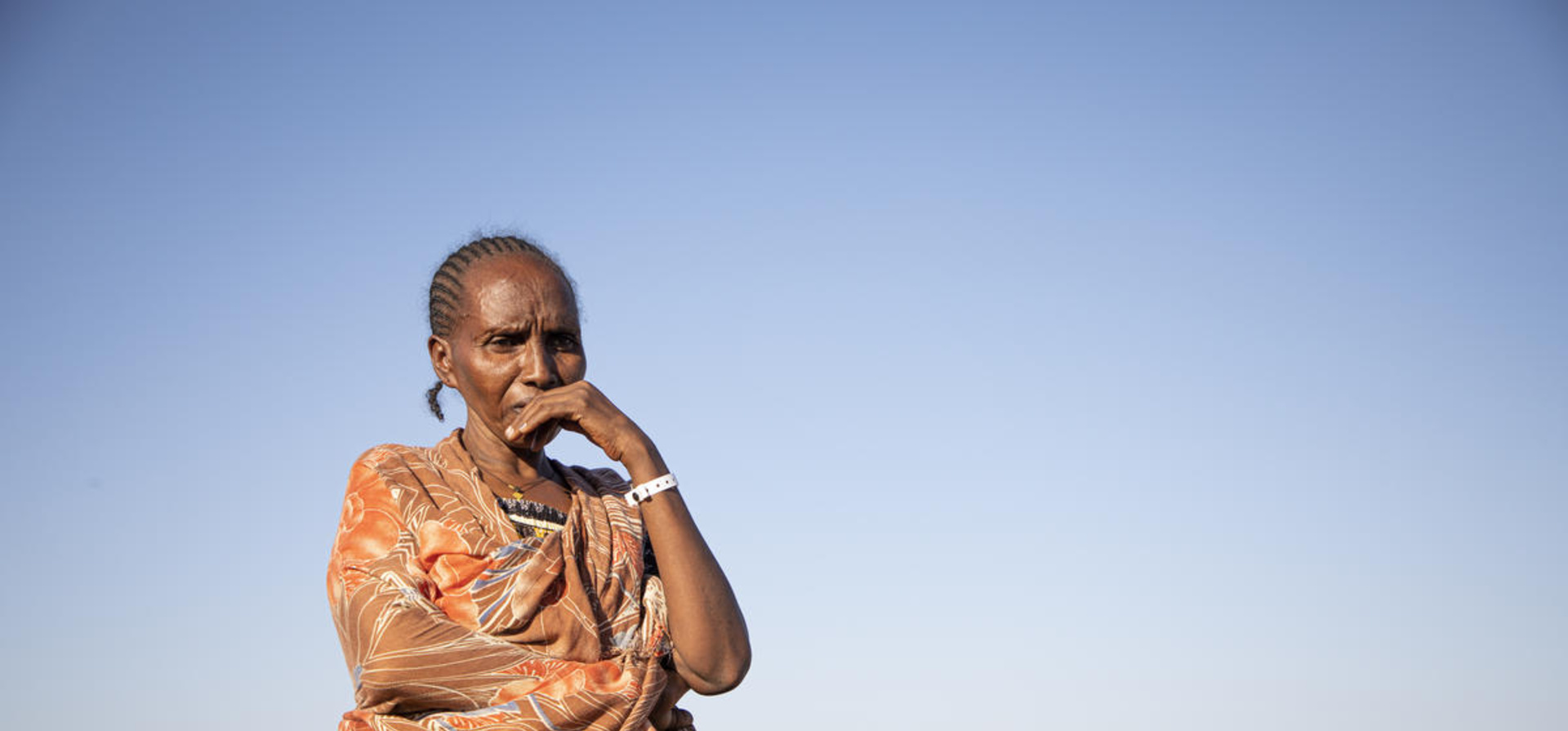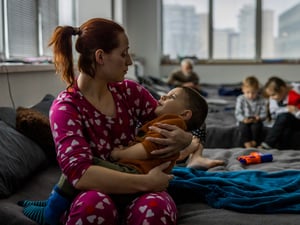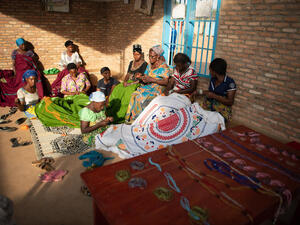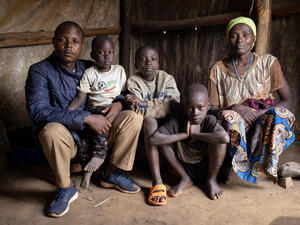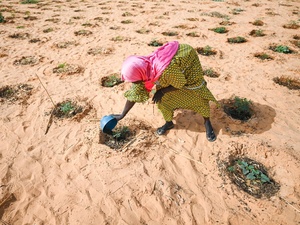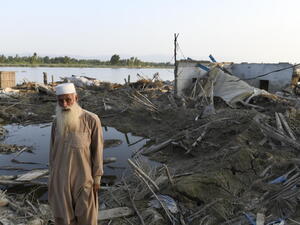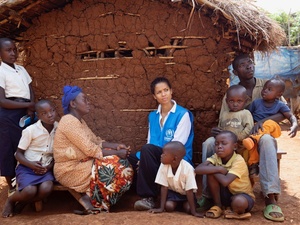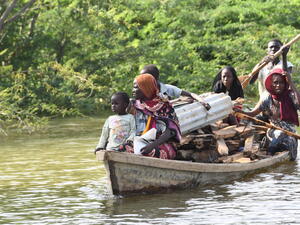Growing needs for thousands of displaced Ethiopians in Sudan
Before her husband was taken by armed men one day in November, Tsige and her family enjoyed a quiet, idyllic life, farming their land in Ethiopia’s Tigray region.
But everything changed in early November, when conflict broke out in the region and armed men took her husband.
After being held for seven days, he was released, but the experience left the family with an ominous feeling, wondering what they should do now.
That night, Tsige slept outside with her daughter, while her husband spent the night at another house. The following day, a tough decision was made.
She knew it was no longer safe to stay at their farm.
“I told my family we have to leave. I told my husband to take our son and I would follow with our daughter,” explains Tsige. “We will meet there but we must run.”
“We are just here sleeping on the ground, without even a change of clothes.”
The family fled to Sudan, not knowing whether they would ever see one another again.
Unlike many families who have been separated in flight, they were reunited in Hamdayet. Tsige and her family are now safe, but struggling to cope.
“We are just here sleeping on the ground, without even a change of clothes,” adds Tsige.
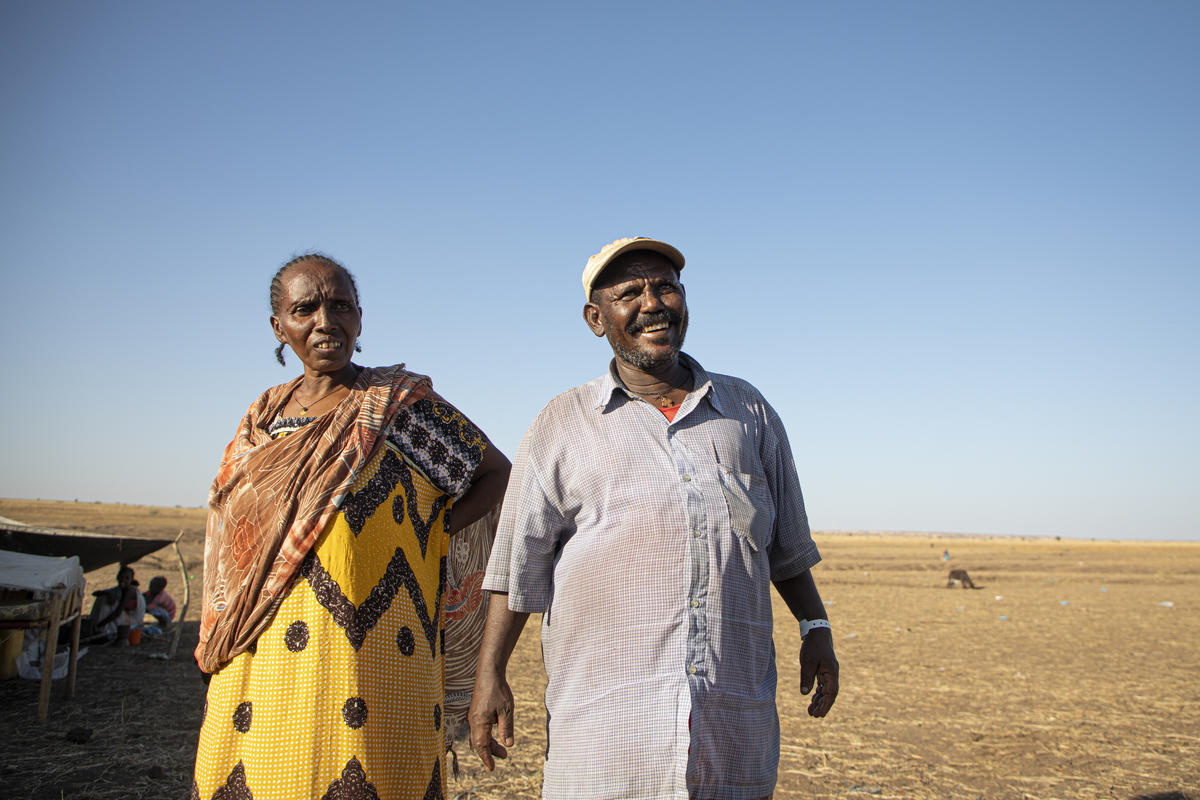
Ethiopian refugee Tsige, waits with her husband at Hamdayet border reception centre in Sudan, to be relocated to Um Rakuba camp.
Just over 50,000 Ethiopians have fled to Sudan to date, following escalating conflict in Ethiopia’s Tigray region. UNHCR, the UN Refugee Agency, together with the Sudanese authorities, has moved some 14,000 refugees from Hamdayet and Abderafi border points to Um Rakuba camp, situated some 70 kilometres away from the Ethiopian border. Most of the refugees in the camp and those crossing into Sudan, many of them women and children, are desperate for food, shelter, clean water, sanitation and health care.
“The needs are overwhelming. The Hamdayet transit centre which was originally built to house hundreds, now has thousands living there,” said Andrew Mbogori, UNHCR’s Principal Emergency Coordinator in Sudan. "It’s located in such a remote area and it has been challenging to upgrade facilities to minimum standards."
Mbogori adds that there is also a real concern of outbreaks of waterborne diseases and the spread of COVID-19.
Like Tsige, Nigsty, was enjoying her life at home as a housewife with her husband, who worked on a farm as a truck driver. But the conflict forced them to leave everything behind.
Heavily pregnant at the time, she fell sick during the three-day journey and was increasingly worried about her unborn child.
“I was so scared – my stomach was in pain and the situation was very hard. I did not expect to deliver my baby safely,” adds Nigsty, who delivered a baby girl just days after arriving in the camp.
Though grateful for finding safety in Sudan, she is worried about her extended family, who are unaware of their whereabouts or that she has delivered the baby.
“How will they know? I don't even know where they are. There is no phone or internet – everything is closed,” she cries. “We are worried about them, we don't know whether they are alive or not.”
In Ethiopia, UNHCR staff and partners in Shire town have already distributed water, high energy biscuits, clothes, mattresses, sleeping mats and blankets to an estimated 5,000 internally displaced Ethiopians.
“We lost our plans for the future. Everything we worked for is now gone.”
Meanwhile, in Sudan, many refugees say they prefer to remain near the border to wait for family members still in Ethiopia, or in hopes they will be able to return home soon – including farmers, like Tsige, who left their farms behind, which are ripe for harvesting.
“This time of year is harvest time. There was millet in the fields and our workers were in the fields,” says Tsige.
She is trying to remain hopeful but fears for the future and especially, her children.
“We lost our plans for the future. Everything we worked for is now gone,” she cries, adding that since the conflict started, they have not slept. “We had a lot of hope – I educated my children so they can have a better life. I was waiting for my son to graduate from university. But now, our lives have been disrupted.”
Additional reporting by Catherine Wachiaya in Nairobi, Kenya


